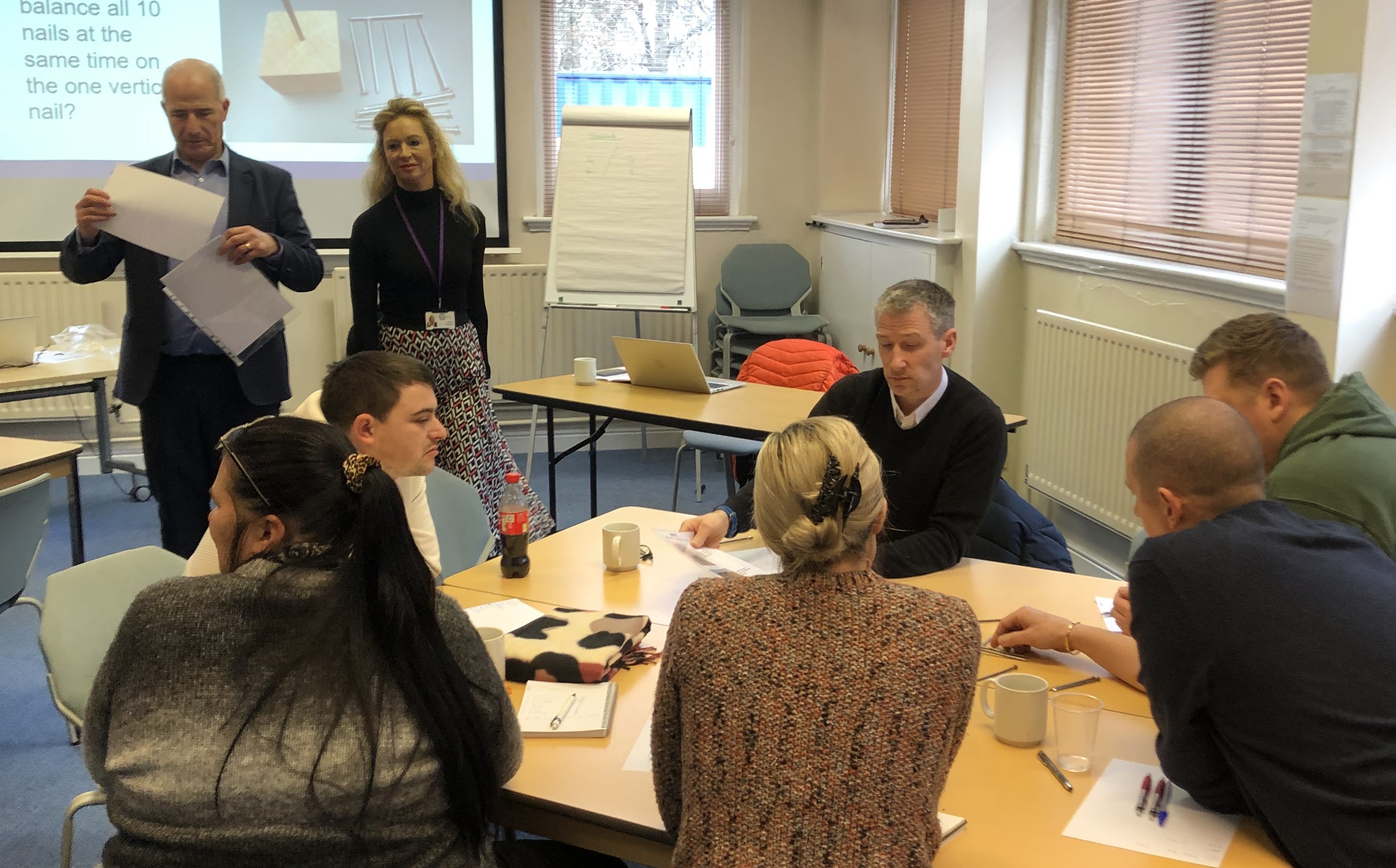In manufacturing, where precision and advanced technology are paramount, it’s easy to overlook a critical factor driving success: people. Leadership and culture significantly influence how smoothly operations run and whether teams thrive. We invited Angela Robinson, one of our Manufacturing Advisors at GM Business Growth Hub, for a chat to explore why these factors are essential, common challenges manufacturers face, and how can businesses address talent retention in today’s competitive environment.
Angela’s Journey into Manufacturing
Hi Angela, can you share your background and what led you to a career in manufacturing?
My career began as a Quality Service Manager at TGI Friday's, where I went through their management training programme. I discovered a passion for people management, problem-solving and processes improvement, which naturally aligned with a transition into manufacturing. My first exposure was through the Manufacturing Advisory Service at The Manufacturing Institute, and I was immediately fascinated by how clients transformed raw materials into finished products.
After 15 years working with manufacturers around the country, I’m now a Manufacturing Business Advisor with GM Business Growth Hub, continuing to work with both SME and large manufacturers in Greater Manchester. Helping businesses to improve operations and tackle challenges is incredibly rewarding, especially in an industry filled with hardworking and passionate people.

The Importance of Leadership and Culture
Why are leadership and culture so crucial in manufacturing, and what challenges do manufacturers face?
Leadership sets the tone for the entire organisation. In manufacturing, strong leadership ensures alignment and keeps teams working toward the same goals, especially when precision and efficiency are crucial.
Culture, meanwhile, determines how people engage and work together. A positive culture boosts employee morale, engagement, and productivity, which directly impacts the quality of the product.
However, many manufacturers struggle in these areas due to:
- Promotion without proper training: Many team leaders are promoted for their technical skills but lack essential leadership training. This can cause friction when managing former peers and handling new responsibilities.
- Communication gaps: Effective communication is vital, yet many organisations struggle with the lack of transparency between different levels. This creates misunderstandings, reduces morale, and hinders problem-solving.
- Resistance to change: Manufacturing is often deeply rooted in tradition. Introducing new processes or cultural changes can be met with resistance, especially if employees don't see the benefits or aren’t involved in the decision-making process.
- Lack of structure: Without clear structures and processes, it can be difficult for teams to know what is expected of them. This can lead to inefficiencies, errors, and frustration among employees.
At GM Business Growth Hub, we help address these challenges through tailored workshops and training programmes that equip leaders with the right tools to communicate effectively, implement structure, and create an inclusive culture.
Real Impact: Boosting Productivity and Morale

Could you share an example of a company you’ve worked with and the impact of your support?
One standout example is an engineering company in Oldham. When I started working with them, their team leaders faced challenges with leadership and team dynamics. Our team delivered a leadership and culture workshop to help them build confidence and learn practical tools for people management.
The transformation was incredible. Team leaders took ownership of their roles, the company saw immediate improvements in productivity and morale. We also delivered a problem solving workshop, teaching tools like the 5 why’s and fishbone diagrams, empowering employees to address issues independently and improve processes.
The impact was profound. Not only did the team leaders become more confident and effective, but the overall morale in the company improved. Absenteeism rates dropped, and there was a noticeable boost in productivity. Seeing the tangible changes and knowing that our support made a real difference was incredibly rewarding.
Addressing Talent Retention in Manufacturing
In the past, I also worked in the HR department for large companies, where I learned that retaining talent starts with understanding what employees value. Younger generations, in particular, prioritise communication, growth opportunities, and workplace flexibility. Here are three key strategies:
- Encourage open communication: It's important for management to foster an environment where employees feel heard and valued. Transparency builds trust and loyalty.
- Provide growth opportunities: Offering training, mentorship, and clear career progression paths keeps employees motivated. Recognising their contributions regularly is equally important.
- Build an inclusive culture: A positive, inclusive work culture attracts and retains talent. Flexible work arrangements and employee well-being initiatives go a long way.
Investing in people is just as critical as investing in technology. Leaders who recognise this will have a significant edge in retaining and growing their talent pool.
How GM Business Growth Hub Supports Manufacturers
At GM Business Growth Hub, we offer tailored workshops, on-site support, and advisory services to help manufacturers strengthen their leadership and culture. Whether it’s addressing communication gaps, implementing structured processes, or empowering leaders to create a positive work environment, we’re here to help. Ready to improve leadership and culture in your organisation? Connect with our specialist Manufacturing Team for expert advice on taking the next step.
Interested in learning more? Join our upcoming Manufacturing Culture & Leadership Workshop on Wednesday, 4th March in Bolton.
Get in touch
Please contact us at 0161 3593050 or query below.
Take that first step and we’ll support you with whatever you need to succeed.
Sign-up to our newsletter
Insights, news, events and opportunities straight to your inbox.